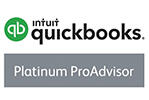Form P1000 now available digitally
Dealing with a deceased person's tax affairs can be drawn out, partly due to the authorisation process. However, a recent change should help simplify things. What’s the full story?

When a client dies, HMRC will cancel the authority the advisor holds - required to act on the their behalf. This means that the advisor immediately loses access to all of their client’s online information. If the advisor is to continue acting, e.g. filing the tax return for the estate during the administration period, they have to reapply for authority to act for the personal representatives. This is generally done by submitting a form 64-8, but HMRC prefers the application to be made on form P1000, which contains information pertinent to the estate, e.g. the personal representatives’ details.
Using form P1000 secures authorisation up to the date of death as well as the administration period, and helps to avoid issues with repayments. The problem is that, until now, the form has had to be requested from HMRC, which inevitably means delays. The good news is that the form is now available online, which should help streamline things for the advisor and the personal representatives.
Related Topics
-
CT61
-
Repayment thresholds for student finance confirmed
Repaying student finance can seem complicated, with a number of different plan types each having different repayment thresholds. The thresholds for the forthcoming year have just been confirmed. What’s the full story?
-
Advance assurance pilot confirmed
There have been a number of changes to how research and development tax credits are claimed in recent years. HMRC has now confirmed that a pilot of a new clearance procedure will begin later this year. What do we know so far?



 This website uses both its own and third-party cookies to analyze our services and navigation on our website in order to improve its contents (analytical purposes: measure visits and sources of web traffic). The legal basis is the consent of the user, except in the case of basic cookies, which are essential to navigate this website.
This website uses both its own and third-party cookies to analyze our services and navigation on our website in order to improve its contents (analytical purposes: measure visits and sources of web traffic). The legal basis is the consent of the user, except in the case of basic cookies, which are essential to navigate this website.